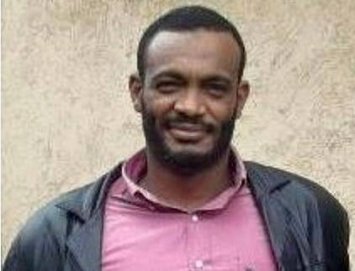The news item published on Advocacy for Oromia on July 9th saying “At least six Oromo university students were also among three journalists and two bloggers released from Ethiopian prison yesterday, according to various reports,” was incorrect as five of the six students mentioned in the story are still in Qilinto, a prison in the outskirts of the city Finfinnee.
It was reported in the news that the freed Oromo university students include “Adugna Kesso, Bilisumma Dammana, Lenjisa Alemayo, Abdi Kamal, Magarsa Warqu, and Tofik Rashid.” However, only the last, Tofik Rashid, was released and the rest are still in Qilinto.
All were students who were arrested by security agents from various universities located in the Oromiya regional states. No charges were brought against many of them in the last year and three months.
The arrest of unknown numbers of Oromo University students followed a May 2014 brutal crackdown by the police against university students who protested when a master plan for the expansion of Addis Abeba, the city originally home to the Oromo, was introduced by the federal government.
The 10th Addis Abeba and Oromia Special Zone Integrated Development Master plan, which was in the making for two years before its introduction to the public, finally came off as ‘Addis Abeba and the Surrounding Oromia Special Zone Integrated Development Plan.’
The government claims the master plan, which will annex localities surrounding Addis Abeba but are under the Oromiya regional state, was aimed at “developing an internationally competitive urban region through an efficient and sustainable spatial organization that enhances and takes advantage of complementarities is the major theme for the preparation of the new plan.”
The students protested against the plan and the federal government’s meddling in the affairs of the Oromiya regional state, which many legal experts also say was against Article 49(5) of the Ethiopian Constitution that clearly states “the special interest of the State of Oromia in Finfinnee.”
Charges against university student Nimona Chali were dropped without explanation and he was released some two months ago.
Two months ago, student Nimona Chali, one of the detained students, was released from jail without charges. Student Aslan Hassen died in prison in what the government claimed was a suicide. However, many believe he was tortured to death. No independent enquiry was launched to investigate his death.
Alsan Hassan died while in police custody. Government says it was a sucide, but many say he died of torture.
By the government’s own account, eleven people were killed during university student demonstrations in many parts of the Oromia regional state. However, several other accounts put the number as high as above 50.



Bilisumma Dammana Alsan Hassan Tofik Rashid
A4O’s Note: We would like to apologize for any inconvenience the original story might have caused our readers and the families of the students who are still incarcerated







